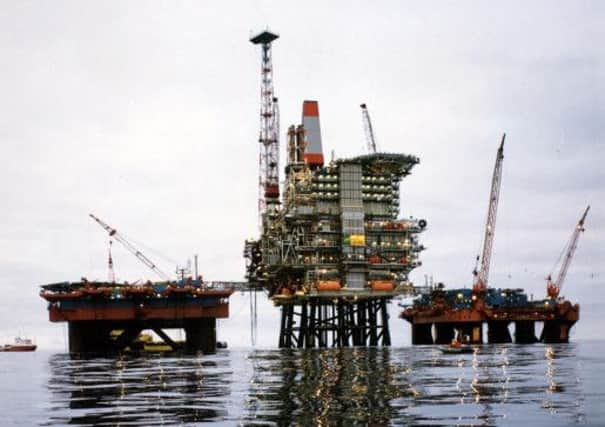Oil crisis: Biggest job threat ‘since Ravenscraig’


New analysis released by Labour suggests that one in 12 Scottish oil jobs are now at risk as a result of the oil crisis.
CONNECT WITH THE SCOTSMAN
• Subscribe to our daily newsletter (requires registration) and get the latest news, sport and business headlines delivered to your inbox every morning
Advertisement
Hide AdAdvertisement
Hide AdThe research conducted by the Scottish Parliament Information Centre (SPICe) suggests there could be 15,750 job lost in Scotland.
The research specialists in SPICe were asked by Labour to examine a recent report written by Oil and Gas UK, skills group Opito and the UK’s Department for Business Innovation and Skills.
The report predicted the loss of up to 35,000 in the industry over the next five years.
The 35,000 figure included industry jobs, supply chain and jobs supported through employee spending.
From this, SPICe calculated 15,750 of the job losses would arise in Scotland (including jobs supported by employee spending), assuming they were spread equally across the UK.
The Oil and Gas UK economic report 2014 showed the industry supports 450,000 jobs across the UK (including supply chain impacts and jobs supported by employee spending).
The report states that 45 per cent of the jobs the industry supports are based in Scotland suggesting around 203,000 jobs are supported in Scotland.
Oil prices have more than halved over the past six months, with global marker Brent Crude dipping from 115 US dollars (£76) a barrel to less than 50 US dollars (£33) on Wednesday.
Advertisement
Hide AdAdvertisement
Hide AdLabour’s finance spokeswoman Jackie Baillie produced the SPICe figure at Holyrood yesterday pointing out that it was greater than the 10,770 shed as a result of the closure of the Ravenscraig steel works in Motherwell 23-years ago.
Ms Baillie raised her concerns on a day that saw First Minister Nicola Sturgeon challenged on what action her Government was taking to alleviate the crisis.
As Ms Sturgeon was questioned on North Sea oil her Energy minister Fergus Ewing published a new report calling for urgent reform of the taxation regime for North Sea oil and gas and also setting out the Scottish Government’s work to support the sector.
Ms Baillie said:”The oil price is under half the price predicted in the SNP’s White Paper, having dropped beneath 50 dollars a barrel yesterday.
“There is a huge threat to jobs here, the industry and economic experts predict that up to one in 12 oil jobs are at risk. These are not only people who directly work in the industry but the local economies in the North East, and people across Scotland who work in the supply chain. We need action, and we need action now.
“Scottish Labour has demanded that both the UK Government and the Scottish Government attend the Oil Crisis Summit.
“This is too important for the UK and Scottish Governments to score political points by playing pass the parcel.
“The Scottish Government has the capacity to act. They can set up a resilience fund to be used when our key industries in Scotland face a crisis.
Advertisement
Hide AdAdvertisement
Hide Ad“SNP Ministers have been calling this an oil fund. It is not and it is ridiculous that they are attempting to refight the referendum when people’s jobs are on the line.
“We need action now. Not finger pointing. This crisis is the biggest threat to Scottish jobs since Ravenscraig and the Scottish Government have been nowhere to be seen.”
At First Minister’s Questions, Ms Sturgeon responded to concerns by calling on the UK Government to “get its act together” on measures to help the oil and gas industry amid falling prices.
Nicola Sturgeon said the Chancellor must introduce a “stable and competitive fiscal regime” to protect thousands of jobs in the sector.
Later Mr Ewing produced his report, which proposed fiscal changes to support investment, encourage exploration and ensure that the North Sea is a competitive investment location.
The three key proposals were: an investment allowance to provide support for fields that incur higher costs to develop; a phased and timetabled reversal of the increase in the Supplementary Charge implemented by the UK Government in 2011; and the introduction of an exploration tax credit to help increase levels of exploration and sustain future production.
SCOTSMAN TABLET AND IPHONE APPS